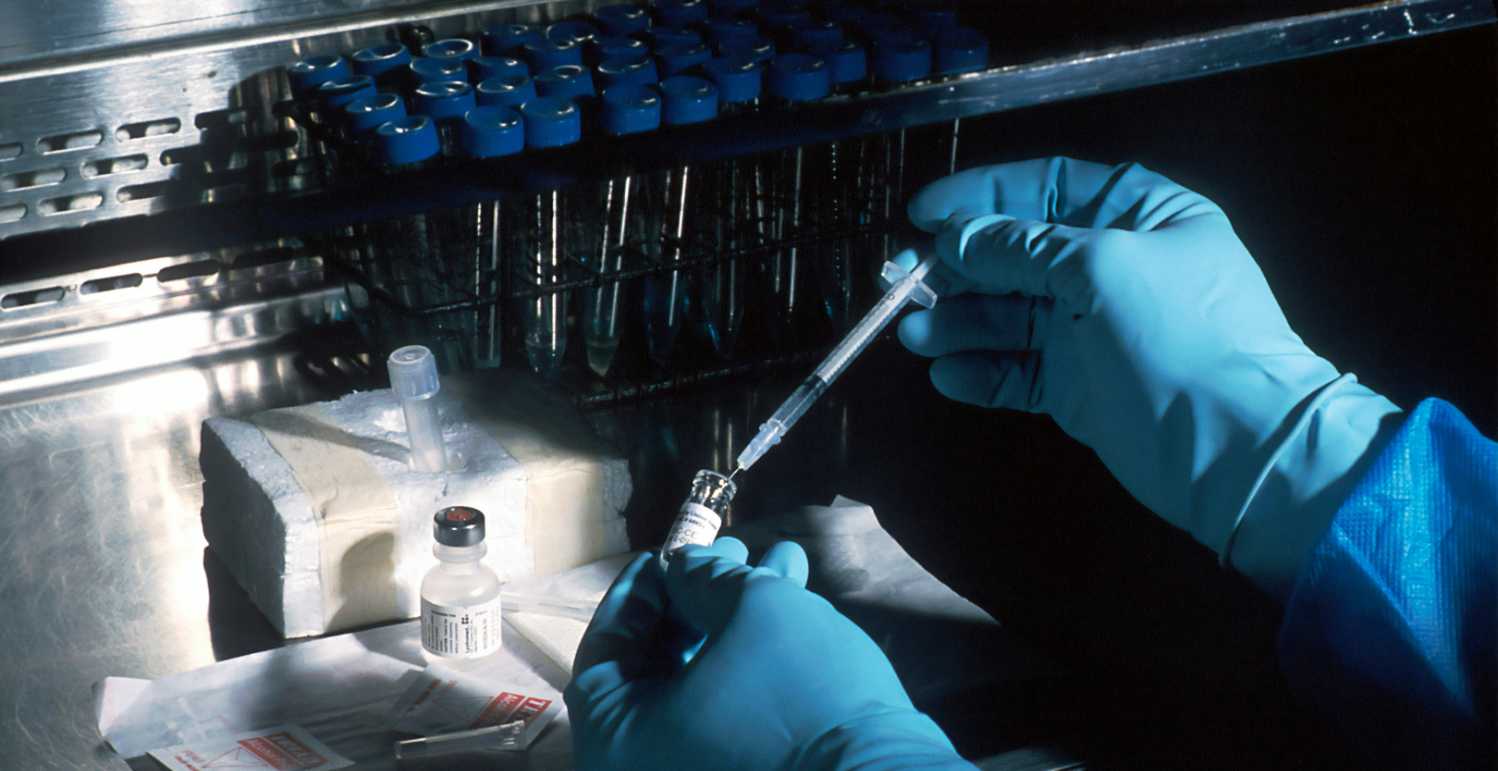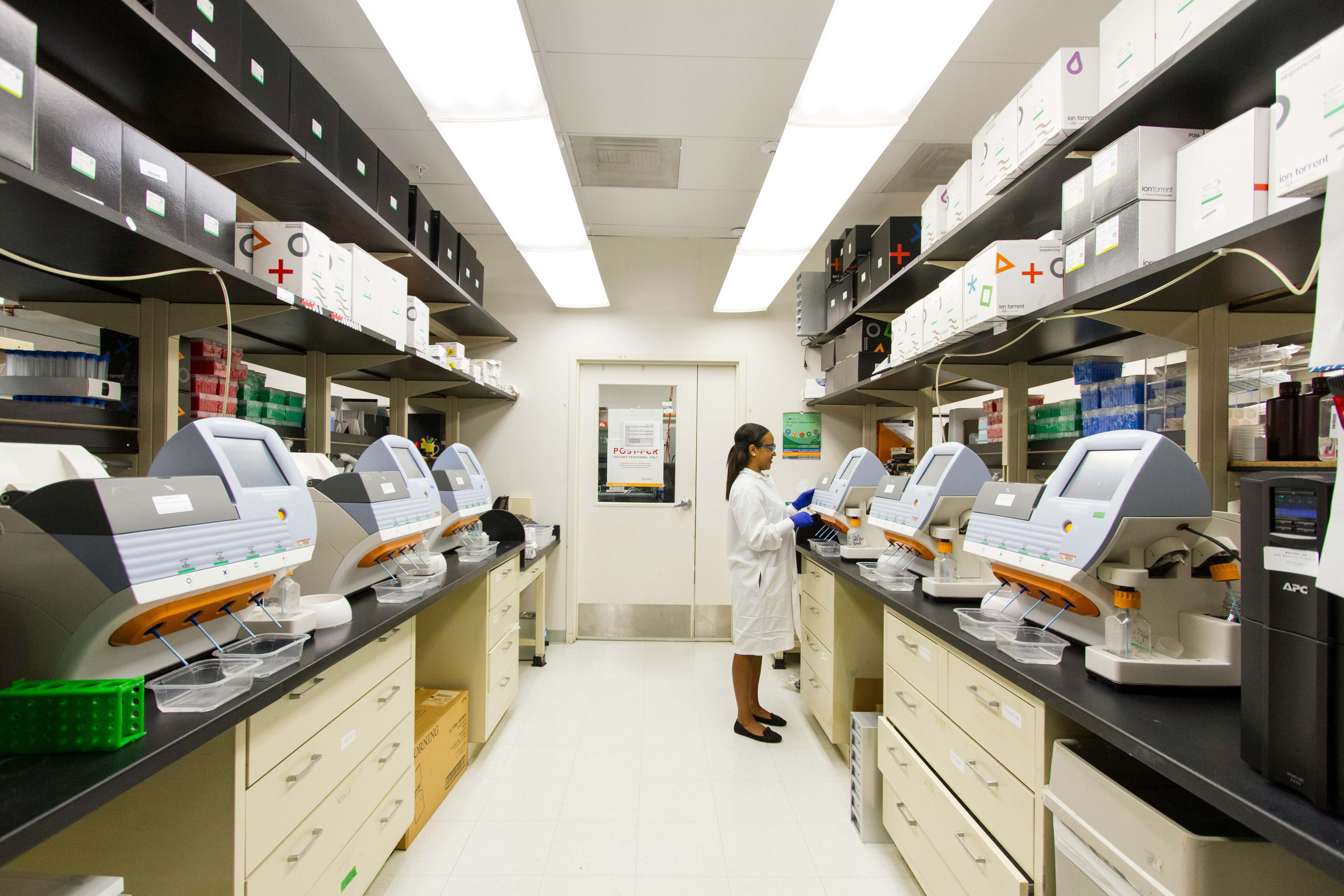Insights
When to Recruit for Your Clinical Trial Team
19 Jun, 20246 minutesIn recent years, the clinical trial market in the USA has seen significant growth, driven by...

In recent years, the clinical trial market in the USA has seen significant growth, driven by advances in medical science. However, alongside this growth come challenges. With more players entering the field, competition for skilled professionals and limited resources has intensified. Navigating this landscape requires careful planning and execution.
These challenges mirror the constantly changing environment of the healthcare industry. While there's a push for innovative treatments, organizations must also contend with regulatory hurdles and financial limitations. Striking a balance between these factors is crucial for success in bringing new therapies to market. It's a complex journey where every decision counts, and adaptability is critical to overcoming obstacles.
This guide will explore the four primary stages of clinical trials, highlighting the essential elements of each phase. Additionally, we'll examine the optimal timing for recruiting specific roles for your clinical trial team to enhance trial efficiency and achieve successful outcomes.
Why is Recruiting at the Right Time Important in Clinical Trials?
Recruiting people at the right time is crucial in clinical trial teams. As the field becomes more complex with increasing regulations and data requirements, managing trials becomes tougher. Recent studies reveal a significant uptick in complexity, with eligibility criteria and endpoints soaring by 61% and 86%, respectively, from 2001 to 2015. This complexity poses recruitment challenges, with about 80% of trials facing delays or closures due to unfilled positions.
These recruitment issues have severe repercussions throughout the trial process. Early stages require protocol development and patient screening expertise, while later stages demand robust data and project management skills. Each stage has its own needs, including staffing.
Recruiting suitable clinical trial staff at each stage is vital for several reasons:
Efficient Trial Conduct
Different phases of trials need staff with specialized skills. Focusing recruitment on specific skill sets during different phases allows targeted training and development, supporting a more adaptable workforce. For instance, during the preclinical stage, scientists and lab technicians are crucial for conducting experiments and gathering initial data. In Phase III trials, clinical trial managers and data managers are indispensable for coordinating multi-site trials and handling large volumes of data.
Risk Management
Recruiting the right staff at each stage helps mitigate risks and ensure compliance with regulations. Early recruitment of regulatory affairs specialists ensures that trial protocols adhere to regulatory standards from the start, reducing the risk of delays and regulatory issues later on. Similarly, recruiting medical monitors and drug safety specialists in later stages ensures effective participant safety monitoring and appropriate management of adverse events.
Optimized Resource Allocation and Talent Acquisition
Recruiting staff at the proper stages optimizes resource allocation and addresses talent competition and grant funding cycles. Securing talent before committing elsewhere can avoid unnecessary costs and maintain efficient staffing throughout the trial.
Early recruitment of clinical trial managers and coordinators supports effective budget management and reduces the risk of costly delays. Similarly, bringing in data managers and statisticians at appropriate stages enhances data collection, management, and analysis efficiency, ensuring reliable trial results while minimizing errors.
Hiring the right clinical trial staff at each stage is crucial for efficient trial management, risk reduction, and resource optimization. You can enhance the likelihood of trial success by assembling skilled teams. Well-structured clinical trial teams will expedite the process of delivering safe and effective treatments to patients at a reduced cost.

Enforcing Strategic Recruitment
You need to recruit the right staff at the right time to ensure timely results delivery. Understanding the specific needs of each trial stage and recruiting accordingly is vital for improving efficiency and success rates. From data managers to grant writers, your clinical trial will comprise multiple components that require specialist clinical professionals to take action.
Let’s examine the stages of trial activity, what they entail, and when to recruit each team member below.
Pre-Clinical and Early
The preclinical phase is the foundation for clinical trials. It focuses on evaluating the safety and efficacy of potential treatments in laboratory settings before thoroughly testing them. The primary goal is to gather sufficient evidence supporting the treatment's safety profile and potential therapeutic effects.
This stage has various components focused on prioritizing safety, iterative refinement, assessing feasibility, determining safety, and gathering initial data. Researchers continually assess their findings during this stage, ready to adjust the treatment dosage or discontinue the approach altogether if safety issues emerge.
Ensuring compliance with regulations is essential, as these regulations specify the necessary steps for preclinical studies before advancing to human trials. During pre-clinical trials, the primary focus is evaluating the treatment's potential, ensuring safety, and collecting initial data to understand how the treatment interacts with living organisms and its effectiveness for initial human testing.
Who Should You Recruit During the Pre-Clinical Trial Stage?
During the pre-clinical trial stage, assembling a proficient team is essential as it sets the groundwork for subsequent clinical phases. This phase primarily revolves around laboratory research, where potential treatments are tested on cells and tissues, emphasizing safety significantly.
Various elements connect here, including trial design, regulatory compliance, safety assessment, operational coordination, scientific leadership, laboratory work, and funding acquisition. Safety is paramount in pre-clinical trials, with a critical focus on detecting potential toxicities or adverse responses before proceeding to human experimentation.
To be fully prepared for pre-clinical activities and future clinical stages, you will typically need to recruit:
- Trial Designers: These professionals design experimental protocols and trial designs based on pre-clinical research findings to ensure efficient evaluation of potential drug candidates.
- Regulatory Compliance Officers: These regulatory-focused experts ensure compliance with regulatory standards and guidelines throughout pre-clinical research and prepare documentation for regulatory submissions.
- Toxicologists: Toxicologists assess the safety of potential drug candidates and guide risk assessment based on preclinical data, making them essential in the early clinical trial phases.
- Study Coordinator: Professional study coordinators organize various aspects of pre-clinical research, including scheduling experiments, managing resources, and ensuring protocol compliance.
- Chief Investigator: Chief investigators provide scientific leadership and oversight of the pre-clinical research process to ensure research integrity.
- Research Scientist and Laboratory Technician: These roles lead and assist in conducting experiments, analyzing samples, and maintaining laboratory equipment to support pre-clinical research efforts.
- Grant Writers: Grant writers are involved in the early stages of trial planning to secure funding for the research project during planning.
- Biostatisticians: These professionals are involved in designing experiments, analyzing pre-clinical data, and planning subsequent clinical trials. They help researchers determine appropriate sample sizes and analyze data.
Recruiting these professionals early in the pre-clinical trial stage is essential to preventing talent gaps and ensuring a well-rounded team equipped to tackle the challenges inherent in pre-clinical research. Their collective expertise and contributions begin the successful translation of research findings into safe and effective patient treatments.
Phase 1
Phase 1 trials represent the initial introduction of a potential treatment into human subjects, whether a drug, device or other medical intervention. Following the preclinical stage, this phase strongly emphasizes evaluating safety and exploring dosage levels. In these trials, researchers aim to determine the safest dosage range, identify any adverse reactions, and gain preliminary insights into the treatment's efficacy.
Typically involving a small group of healthy volunteers, Phase 1 trials are conducted in a highly controlled setting with limited scope. They focus primarily on safety and basic pharmacokinetics, usually lasting several weeks or months. These trials serve as a crucial safety check before proceeding to larger-scale studies. While Phase 1 clinical trials provide valuable early insights, they also play a vital role in informing future research and developing promising interventions.
Which Clinical Trial Team Members are Needed in Phase 1?
During Phase 1 clinical trials, assembling a proficient team is essential as it sets the tone for subsequent phases. This phase primarily focuses on assessing the pharmacokinetics and pharmacodynamics of potential human treatments. Various elements converge, including study design, regulatory compliance, participant recruitment, data collection, and analysis.
Each role in the team, from clinical research associates and trial managers to data managers and biostatisticians, plays a significant part in ensuring the trial's success. Participant safety, ethical standards, and data integrity are top priorities throughout Phase 1 trials.
To conduct Phase 1 trials effectively, recruiting professionals with expertise in these areas is necessary. By assembling a skilled and dedicated clinical trial team for phase 1, researchers can ensure the evaluation of potential treatments while upholding ethical standards and safeguarding participants.
Depending on the size, nature, and funding of your clinical research project, you should aim to recruit a variety of the following professionals:
Clinical Research Associates (CRAs): Monitor Phase I trials to ensure protocol compliance, data accuracy, and participant safety.
Clinical Trial Managers: Coordinate Phase I trial activities, including site selection, budget management, and regulatory compliance.
Data Managers: Collect, clean, and analyze clinical trial data to ensure accuracy and integrity in Phase I trials.
Statisticians and Statistical Programmers: Provide statistical expertise in designing Phase I trials, calculating sample sizes, and analyzing safety data.
Throughout Phase 1, a selection of roles from the pre-clinical phase is still needed, including biostatisticians who design randomized trial statistical frameworks. This includes regulatory affairs officers, chief investigators, and study coordinators.
Phase 2
Phase 2 of a clinical trial represents a significant stage in evaluating new interventions or treatments. It follows the initial safety assessments conducted in phase 1 and focuses on assessing the intervention's effectiveness on a larger scale. During this phase, researchers closely monitor participants to gather data on the intervention's impact on the targeted condition. Additionally, phase 2 trials thoroughly monitor participants to identify potential side effects associated with the intervention.
Compared to phase 1, phase 2 trials typically involve a larger group of participants and can last several months to two years. Participants are carefully selected based on specific criteria to ensure they represent the intended population for the intervention. These trials often employ randomized and controlled designs, with participants assigned to different groups to assess the intervention's effectiveness compared to standard treatments or placebo.
The insights gained from phase 2 trials are crucial for determining the intervention's potential benefits and guiding decisions for further development or larger-scale trials.
Which Clinical Professionals Should You Recruit in Phase 2?
Phase 2 clinical trials require a diverse and skilled clinical trial team to ensure successful outcomes. From patient monitoring to data analysis, various professionals must establish a strong, well-structured team capable of delivering timely results.
By assembling a proficient team with expertise in various areas, researchers can effectively navigate the complexities of phase 2 trials, addressing this stage's unique challenges and objectives. Collaboration among these professionals is essential for conducting trials that follow ethical standards, uphold participant safety, and generate reliable evidence on treatment efficacy and safety.
Alongside roles like Clinical Research Associates (CRAs) and Biostatisticians, additional professionals are enlisted to ensure comprehensive support:
Clinical Trial Managers: Coordinate various trial activities, including site selection, budget management, and regulatory compliance, ensuring seamless execution and adherence to timelines.
Clinical Research Coordinators: Overseeing participant enrollment, engagement, and retention, Clinical Research Coordinators play a pivotal role in maintaining study integrity and meeting enrollment targets.
Clinical Pharmacists: Given the emphasis on refining treatment regimens and dosage optimization, the expertise of clinical pharmacists in drug management and pharmacokinetics becomes invaluable in phase 2 trials.
Clinical Safety Scientists: Focused on accumulating additional safety data, clinical safety scientists monitor and evaluate adverse events, contributing to participant safety and regulatory compliance.
Recruiting these specialized professionals ensures a solid support network for phase 2 trials, addressing this stage's unique challenges and objectives while upholding participant safety and data integrity standards.
Additionally, considering the vital roles of Biostatisticians in analyzing complex data sets and CRAs in monitoring trial conduct, recruiting additional personnel in these roles may be necessary to manage the increased workload effectively. Hiring these clinical trial team members for the phase 2 processes well before the beginning of phase 1 will give you enough time to find talented professionals and successfully implement clinical recruitment.
Phase 3
Phase 3 trials are a crucial step in testing new treatments. They aim to gather strong evidence about how well a treatment works and how safe it is for a larger group of people. These trials build on what we've learned from earlier phases and go deeper into understanding the treatment's effects. They involve diverse participants and last longer to know how the treatment affects different people.
With regulator approval approaching, phase 3 trials are crucial. They require careful planning, execution, and analysis to meet strict standards and satisfy market expectations. Recruiting the right clinical trial team is essential for smooth execution and reliable data collection. Typically lasting several years, phase 3 trials are the final hurdle before widespread clinical use, ensuring safety, effectiveness, and beneficial impact.
Who Should You Recruit in Phase 3?
As phase 3 trials become more complex, it's vital to have a skilled team to handle the challenges. This team includes experts in regulations and professionals who can monitor safety over the long term. Each team member ensures the trial runs smoothly, meets all the rules, and provides solid evidence about the treatment's effectiveness and safety.
In the advanced stage of phase 3 trials, building a proficient team becomes essential to navigate the complexities of this critical phase. Here are vital new roles that should be considered for recruitment:
Participant Engagement Specialists: These professionals encourage strong participant engagement, ensure high retention rates, and adhere to trial protocols. They play a crucial role in maintaining trial integrity and data quality.
Trial Operations Managers: These individuals oversee the logistical aspects of trial execution, ensuring smooth coordination of trial activities, adherence to timelines, and efficient resource allocation. Their operational expertise is vital for optimizing trial performance and reducing potential risks.
Real-World Evidence Analysts: These professionals leverage diverse data sources to provide valuable insights into treatment effectiveness and safety in real-world settings. They also enhance the overall understanding of treatment outcomes and support informed decision-making.
Regulatory Writers: These professionals are responsible for drafting and reviewing regulatory documents, ensuring accuracy, clarity, and compliance throughout the regulatory submission process. Their expertise in regulatory affairs is important for regulatory approval and ensuring timely market access for the investigational treatment.
In addition to recruiting new roles, specific existing roles within the trial team become more prominent in phase 3 trials. The number of these roles should be increased during this stage in clinical recruitment.
Key examples of these roles include:
Clinical Research Associates (CRAs): CRAs are crucial in phase 3 trials. They ensure the trial runs smoothly, the rules are followed, and the data is accurate. Their job becomes more important in this stage as the trial has more participants and sites.
Data Managers: Data Managers become particularly important in phase 3. They organize and analyze lots of trial data. With more data, their role is critical to making good decisions and proving that research works.
Project Managers: Project Managers take charge in phase 3. They oversee everything - from planning to managing risks. With so much going on, they keep things on track and make sure everyone knows what to do.
Regulatory Affairs Officers: In phase 3, Regulatory Affairs Officers are vital. They ensure the trial follows the rules and talk to regulators. As rules become stricter, their expertise is needed to get the treatment approved.
Ensuring that you plan your clinical recruitment strategy thoroughly and scale talent according to specific stages will prevent the misuse of resources and increase the likelihood of timely success overall.
Maximizing Clinical Trial Team Impact: Final Thoughts
The success of clinical trials greatly depends on recruiting the right professionals at the right stages of the process. Each step requires a skilled and dedicated team, whether it's the initial planning in the pre-clinical phase or the real-world data collection in the post-marketing surveillance phase.
By recruiting professionals with the appropriate expertise at each stage, trials can be conducted efficiently, risks minimized, and resources optimized. Every role, from trial designers and compliance officers to research nurses and data managers, is crucial to ensuring the trial's success.
Understanding the specific needs of each trial stage enables sponsors to implement strategic recruitment practices, reduce delays, and ensure compliance with regulations. By assembling multidisciplinary teams, your organization can better navigate the complexities of clinical trials, ultimately accelerating the delivery of safe and effective treatments to patients.
Unlock Your Clinical Trial Team’s Potential
Since 2017, we have established a strong track record of matching professionals with leading life science, research, and pharmaceutical organizations. Our customized recruitment solutions cater to your specific needs, guiding you from initial applications to seamless onboarding. With industry-specific expertise at every stage, our consultants ensure a smooth and successful recruitment process.
Reach out today to discover how we can assist your clinical trial team and drive success for your organization.



